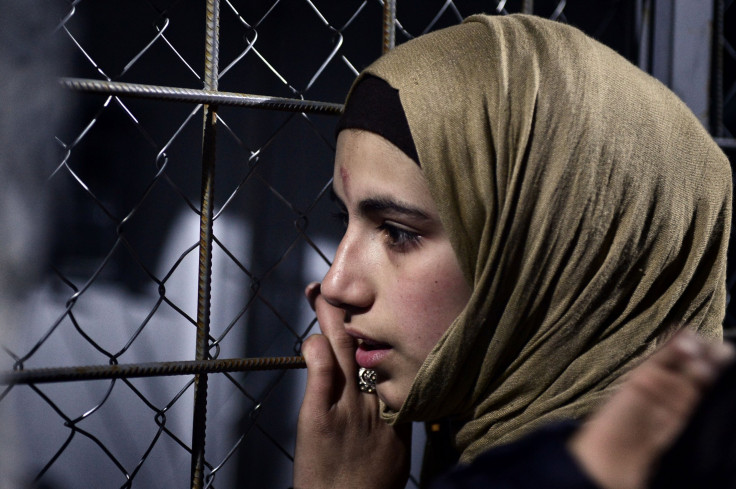EU Refugee Crisis In Greece: Border Closures With Schengen Area May Cause 70,000 Asylum-Seekers To Be Stranded

As nations throughout the Balkan countries of Europe have begun closing their borders to stem the flow of migration, a bottleneck along the Macedonia-Greece border risks stranding up to 70,000 asylum-seekers in March, a Greek official warned Sunday. More than 20,000 asylum-seekers have already found themselves stuck on the Greek side of the Macedonian border, as nations close their doors to refugees and economic migrants.
Local authorities have warned of an emerging humanitarian crisis if measures are not taken to ease the bottleneck on Greece’s border, Al Jazeera reported. Slovenia, Serbia and Croatia followed Macedonia in reinforcing borders and restricting entry to 580 people per day, the Guardian reported Friday, leaving tens of thousands of people in Greece, where many asylum-seekers first arrive in Europe, traveling from Turkey.
"We estimate that we will have a number of people trapped in our country which will be between 50,000 and 70,000. ... I believe in the coming month," immigration minister Yannis Mouzalas said Sunday in an interview with a Greek television station.
More than 1 million people have crossed into Europe from conflict zones in the Middle East and North Africa seeking asylum status in European Union nations in 2015 and into 2016. The vast majority of arrivals have been bona fide refugees, defined as “persons fleeing armed conflict or persecution,” according to the United Nations convention on refugees.
Nearly half of all asylum-seekers who have entered Europe have fled an ongoing armed conflict in Syria that has raged since 2011. The Syrian crisis began after protests against the government of President Bashar Assad turned violent and eventually spiraled into civil war. Factions have splintered along sectarian lines, as Islamic extremist organizations, such as the Islamic State group, have grown in influence.
Europe has struggled to come up with a unified response to the refugee crisis, and a series of border closures throughout the free-travel zone of the Schengen region have caused problems for refugees looking to make their way from their first point of arrival, often in Greece, to countries in northern Europe such as Germany and Sweden. Belgium announced it would close its borders with France last week ahead of the closure of a French refugee camp in Calais, in northern France.
© Copyright IBTimes 2024. All rights reserved.






















